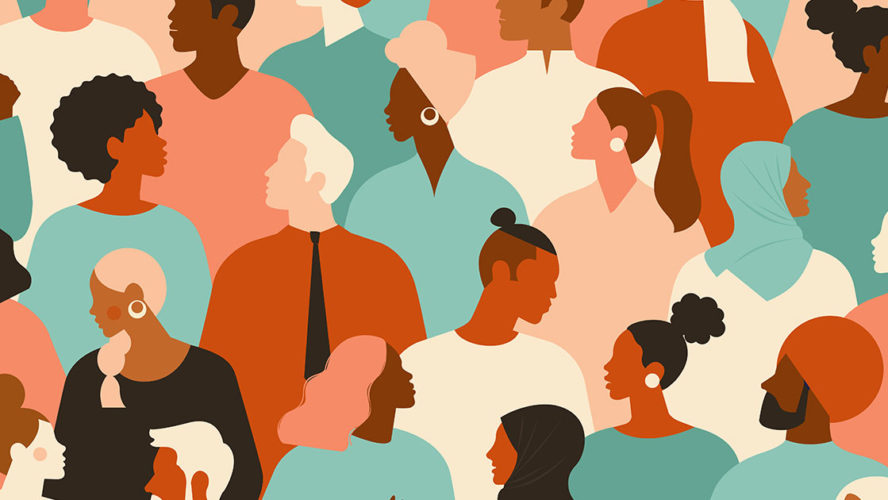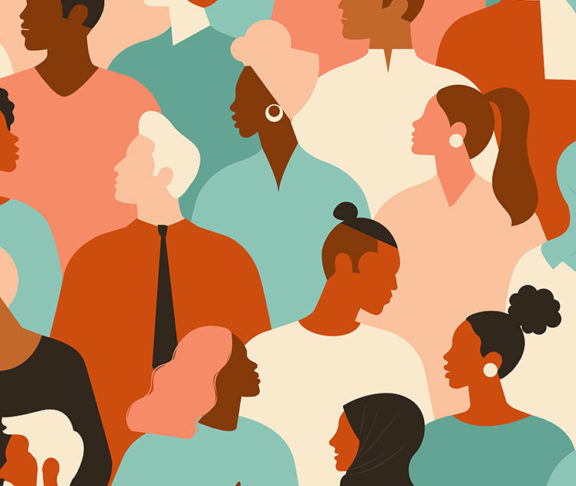Employees believe their employer has a responsibility to make sure they are mentally, physically, and emotionally well — yet many find that employers fall short.
The 2021 Workplace Wellness Survey finds an important disconnect between what employees expect from their employers when it comes to workplace wellness, and how they rate employers’ efforts. While approximately three quarters of employees believe their employer has a responsibility to make sure they are mentally, physically, and emotionally well, just half say their employer has done an excellent or very good job helping them improve their emotional and physical well-being. Overall, Black and Hispanic workers are less likely than White workers to give high ratings to employer efforts to improve various aspects of worker well-being. This raises the question of what employers can do to better help address and improve the well-being and work-life balance of workers, and of Black and Hispanic workers in particular.
Our results show that 45 percent of Black and 47 percent of Hispanic workers rate as excellent or very good their employers’ efforts to help employees improve their physical well-being, compared to 54 percent of White workers. 46 percent of Black and Hispanic workers rate as excellent or very good their employers’ efforts around emotional well-being and mental health compared to 54 percent of White workers. More specifically, higher-income Black workers reported being less satisfied than higher-income White workers with their employers’ efforts to improve employees’ physical and financial well-being, while higher-income Hispanic workers are less likely than higher-income White workers to be satisfied with employer’s efforts to improve employees’ emotional well-being.
Tailoring workplace wellness
This raises the question of what employers can do to better help address and improve the work-life balance of workers, and of Black and Hispanic workers in particular. Our findings show that flexibility to use paid time off and more benefits/resources to help with emotional well-being and mental health would be the most valuable improvements employers could make to employee benefit programs and offerings. Going forward, employers may look to close the gap between awareness and participation in wellness programs as a way to improve financial and emotional stress, satisfaction with employee benefits, and overall job satisfaction. This may include communicating and delivering these programs differently, rethinking their approach or format, or building trust. While these employer-sponsored programs will not resolve the racial/ethnic wealth gap, they may help level the playing field over time.
Further, the findings highlight the need for employers to do a better job of tailoring workplace wellness programs to fit the specific needs of diverse workers at different income levels. Specifically, we should challenge ourselves to better understand why Black and Hispanic workers at the higher income level are sharing quite different experiences than White workers with similar incomes. By taking a more nuanced approach, employers have an opportunity to build program offerings and devise communication strategies that more effectively support a diverse workforce.
About the EBRI
The Employee Benefit Research Institute (EBRI) is a non-profit, independent, and unbiased resource organization that provides the most authoritative and object information about critical issues relating to employee benefit programs in the United States.
The EBRI studies the world of health and retirement benefits, including issues like 401(k)s, IRAs, retirement income adequacy, consumer-driven benefits, Social Security, tax treatment of both retirement and health benefits, cost management, worker and employer attitudes, policy reform proposals, and pension assets and funding. The organization also maintains and analyzes the most comprehensive database of 401(k)-type programs in the world. The EBRI also manages the Center for Research on Health Benefits Innovation, Retirement Security Research Center, and the Financial Wellbeing Research Center.
For more information, visit www.ebri.org.

